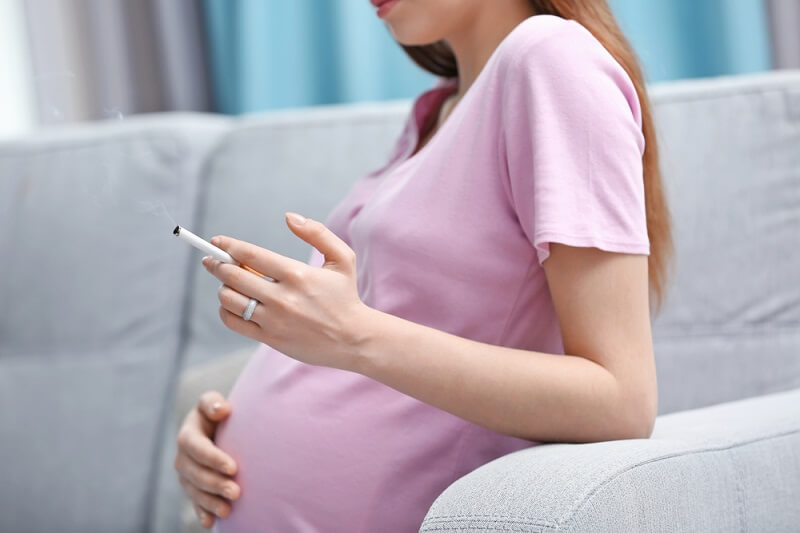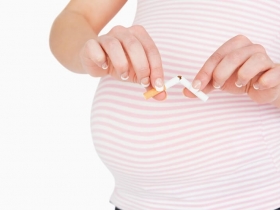Smoking and fertility
Smoking is widely regarded to be dangerous for those who are pregnant and the fetus they are carrying. Doctors advise against smoking while pregnant as this is not healthy for you or your future baby. Besides this, we know there are many health issues that accompany smoking. Smoking can damage many areas of your body such as your lungs, teeth, and gums; but can it also hurt your fertility?
How does smoking affect your fertility?
There have been many studies done on how smoking affects fertility. It has been discovered that for smokers there is a 60% increase in the risk of infertility. Adults that are non-smokers who had exposure to smoke while they were in utero also have a lower rate of fertility. Most studies do show that fertility is decreased both with current smokers and in those with prenatal exposure to smoke.
Current smoking can also have a negative impact on your ovarian reserve. Current smoking is a risk factor for starting menopause at a younger age. Smoking can affect ovarian aging and cause infertility through menopause earlier in life. These studies are on current smokers so past or passive smokers may not experience the same impact on their ovarian reserve. [1]
Smoking is not beneficial for your health and it can impact other things besides your lung capacity. We should all be careful about anything we put in our bodies. Moderation is important with everything as well. Smoking is never recommended, but smoking on occasion may not have such adverse effects on your health in comparison to smoking every day. It is best to cut down on your smoking if you are a smoker and quit if possible.

What should you do if you smoke and are concerned about your fertility?
Quitting smoking is the best thing you can do for your health and especially if you are worried about your fertility due to your smoking. This is often much easier said than done, quitting smoking is incredibly difficult. Luckily there are now many different approaches you can try to see which one works the best for you.
Pregnant women struggle more to quit smoking than infertile women. A study that did have success with getting infertile women to quit smoking included a combination of counseling, education, and encouragement. Most people who receive only educational material struggle to quit using that alone. Counseling and encouragement can go a long way in the process of quitting smoking. Feedback, advice, and weaning off nicotine with patches are also effective for many.
Evidence does show that smoking is associated with spontaneous abortion, ectopic pregnancy, loss of reproductive function, and experiencing menopause up to four years early. For those who wish to conceive naturally or with IVF smoking is not beneficial. Quitting is very difficult, but it can be possible with the many resources that exist. [2]
What are healthy choices to make for your fertility?
Besides smoking, there are other things you should avoid to protect your fertility such as overconsumption of caffeine or alcohol, stress, frequent exposure to environmental pollutants, and diets with a large caloric surplus of fat and sugar. These are all lifestyle choices that may have a negative impact on your fertility. Eating healthy and taking everything in moderation is a good way to ensure you are not overconsuming any one thing. Things like stress and environmental pollutants can be difficult to control. It is important to understand what aspects of your lifestyle you can control and those you can’t. Improve what you are able to and as always seek the advice of a doctor before you make any major lifestyle changes. [3]
Sources:
[1] de Angelis C, Nardone A, Garifalos F, Pivonello C, Sansone A, Conforti A, Di Dato C, Sirico F, Alviggi C, Isidori A, Colao A, Pivonello R. Smoke, alcohol and drug addiction and female fertility. Reprod Biol Endocrinol. 2020 Mar 12;18(1):21. doi: 10.1186/s12958-020-0567-7. PMID: 32164734; PMCID: PMC7069005.
[2] Practice Committee of the American Society for Reproductive Medicine. Electronic address: asrm@asrm.org; Practice Committee of the American Society for Reproductive Medicine. Smoking and infertility: a committee opinion. Fertil Steril. 2018 Sep;110(4):611-618. doi: 10.1016/j.fertnstert.2018.06.016. PMID: 30196946.
[3] Silvestris E, Lovero D, Palmirotta R. Nutrition and Female Fertility: An Interdependent Correlation. Front Endocrinol (Lausanne). 2019 Jun 7;10:346. doi: 10.3389/fendo.2019.00346. PMID: 31231310; PMCID: PMC6568019.






